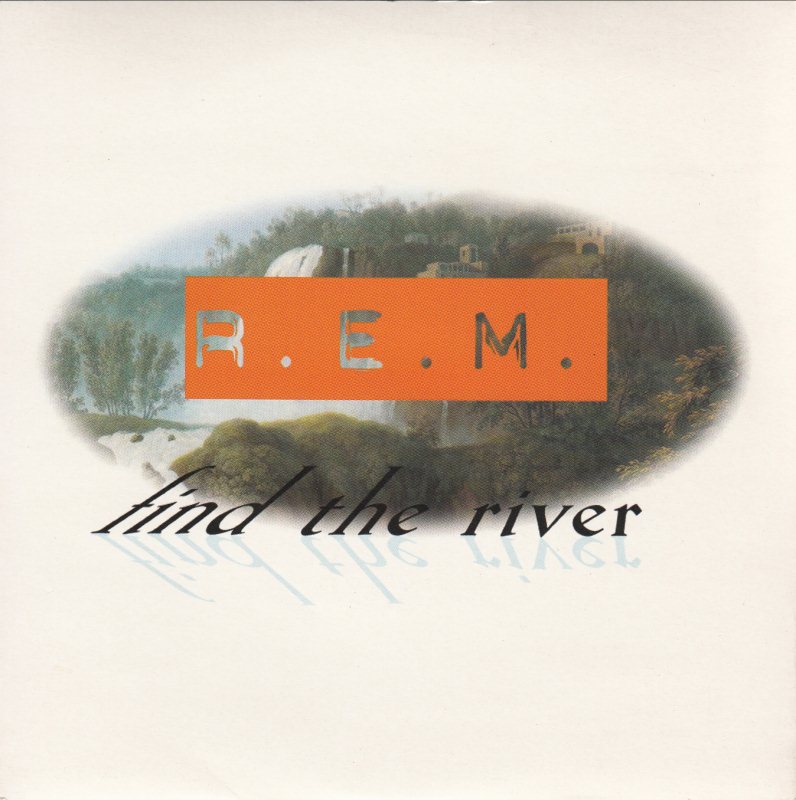On ‘Green’, as the magnificent last track “I Remember California” slowly fades out, you expect that to be the end of that, but then an unsteady drum riff starts, then guitar and voices, and a mournful extra song plays itself and the album out on an unexpectedly uplifting note. This ‘hidden’ final track became known simply as “Untitled Eleventh Song” but the band never formally named the song, leaving its heartfelt, hymn-like allure to speak for itself. I remember listening to ‘Green’ for the first time and being thunderstruck by this final track. It was impossibly beautiful and arrived so completely unannounced. It was the perfect ending to an incredible album.
R.E.M. did the same on their next album, ‘Out of Time’, ending it with the mesmerising “Me in Honey”. Again, no one really knew what the song was about—a relationship coming to an end? Pregnancy?—but its propulsive, insistent two-chord structure turned it into a mantra, something about looking at life and seeing beauty suspended in it.
But the band took things to an even higher plane when they ended their 1992 album ‘Automatic for the People’ with their song “Find the River”. This delicate, luminous ballad is, for me, one of those moments when the band’s songwriting, instrumentation and arrangement all combined to produce a moment of transcendent beauty.
A simple strumming of an acoustic guitar starts the song, then a plaintive mellotron and church-like organ come in and immediately cast the song in a kind of half-light. Then a piano and two sets of contrasting backing vocals come in, adding further elegiac layers to the song. It is an intensely crepuscular track, flickering in the corners of life where sadness and loneliness lurk. Indeed, the whole of ‘Automatic for the People’ is consumed with the recognition of aging and death and how we live with them.
R.E.M. always wrote their songs first of all by Peter Buck, Mike Mills and Bill Berry getting together to lay down the basic tracks. Once that was done, they would hand over the tapes to Michael Stipe, who would then drive around in his car listening to them and coming up with the lyrics. For ‘Automatic for the People’, however, Buck, Mills and Berry decided to trade instruments, with Buck playing mandolin, Mills on piano and Berry playing bass. This set-up naturally led the band away from their rockier sound to more acoustic arrangements, predominantly keyboard led—there is mellotron, clavinet, accordian, piano, electric piano and organ on every song on the record—with mellotron, piano and organ on “Find the River” alone.
And then there are the lyrics. The song’s subjects are transience, midnight car rides, undertow and the pull of tides, all connected to “the recklessness of water”. It is a Thoreau-like exhortation for us to take notice of the world around us and find the hidden connections. Stipe has a habit of using lists as litanies in his lyrics to flavour and season the songs: “A can of beans/Of black-eyed peas/Some Nescafe and ice/A candy bar/A falling star/Or a reading from Dr. Seuss” in ‘The Sidewinder Sleeps Tonite’ or “Hash bars, cherry mash and tinfoil tiaras/seconal, Spanish fly, absinthe, kerosene” in “E-Bow the Letter”. “Find the River” is no different and is littered with references to bayberry, bergamot, vetiver, ginger, lemon, indigo, coriander stem and rose of hay, all herbs that add to its pastoral feel, to the age of Huck Finn and Dean Moriarty.
“Find the River” has a sibling out in the world in the shape of Big Star’s “Watch the Sunrise”. Both are imperatives, instructing us to find life’s secret harmonies and to align ourselves with ourselves. Again, R.E.M. had a habit of using the imperative as song titles—“Talk About the Passion”, “Fall on Me”, “Get Up”, “Stand”, “Belong”, “Drive”, “Try Not to Breathe”—and all these songs are similar in their urgent plea to find direction, to acknowledge the real, to push on and discover for oneself. They are passionate, pressing appeals, and none is more magical or mysterious than “Find the River”.

